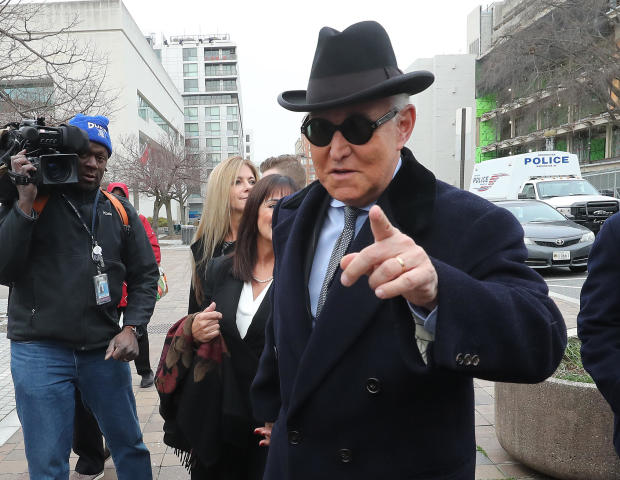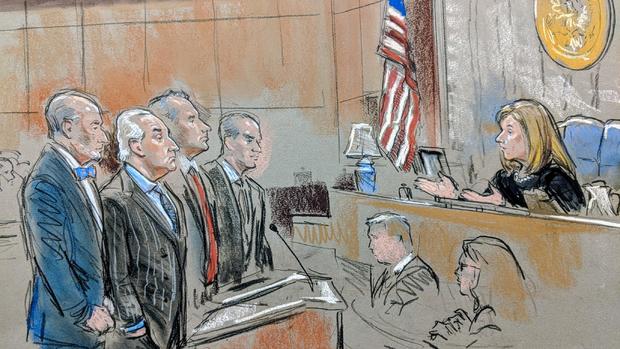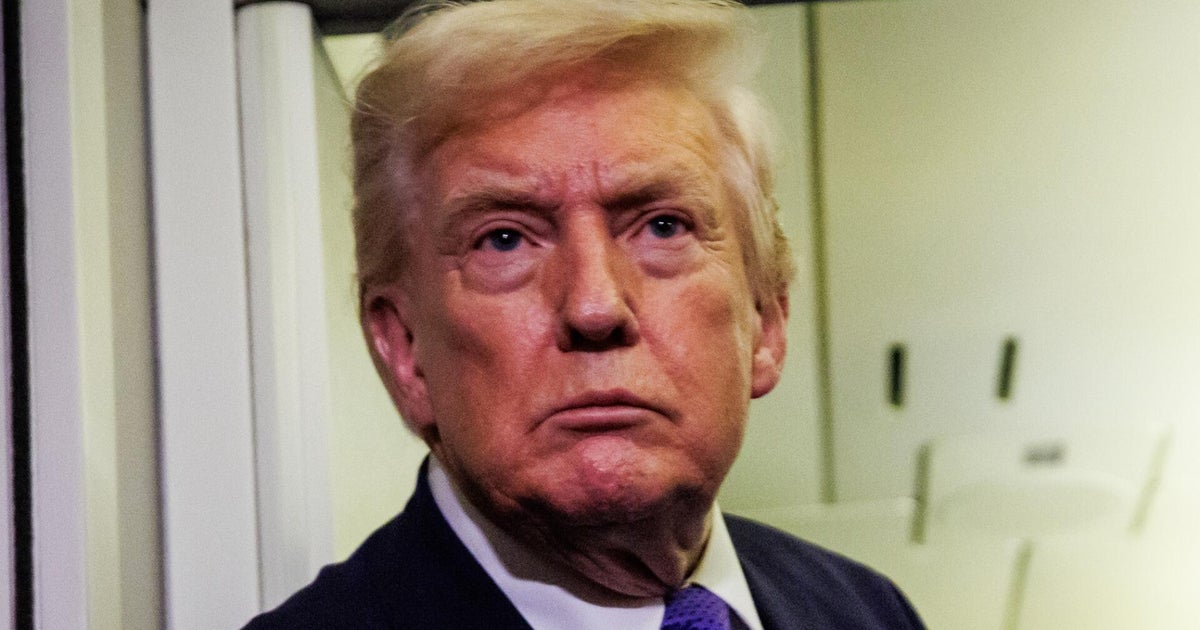Roger Stone sentenced to 3 years, 4 months in prison for lying to Congress
Washington — Roger Stone, the longtime GOP operative and Trump confidant, has been sentenced to 40 months behind bars for lying to Congress about his efforts to collaborate with WikiLeaks during the 2016 campaign and threatening a witness to cover up his actions.
U.S. District Judge Amy Berman Jackson handed down the sentence at a hearing in federal court in Washington on Thursday. Her decision comes amid intense controversy over Attorney General William Barr's highly unusual public intervention in the case over the government's recommended sentence, as well as President Trump's repeated public criticism of the case.
"This is not 'Roger just being Roger.' He lied to Congress. He lied to our elected representatives," Jackson said in her closing remarks. "The sentence is not just about punishing him, but also about deterring others and upholding the law."
While Mr. Trump has hinted at a possible pardon for Stone, he said Thursday afternoon that he wants "to let the process play out."
"I'm following this very closely and I want to see it play out to its fullest," the president said at an event in Las Vegas. "Roger has a very good chance of exoneration, in my opinion."
Stone won't go to prison immediately. His lawyers have requested a new trial based on allegations of political bias, and Jackson said earlier this week that Stone's sentence would be deferred until she rules on that request. He has been on supervised release and under a gag order over the course of the case.
Stone declined to speak at the hearing and did not address a swarm of media outside the courthouse. In addition to the prison sentence, Jackson said Stone must perform 250 hours of community service and pay $20,700 in fines and fees. He will also be subject to two more years of supervised release once he leaves prison.
A federal jury convicted Stone, 67, on seven charges of obstruction, making false statements and witness tampering in November 2019 in a case stemming from former special counsel Robert Mueller's Russia investigation.
The 40-month sentence is shorter than the seven to nine years prosecutors in the case originally recommended in a memorandum last week. Barr deemed that recommendation too harsh and overruled the prosecutors, prompting all four to withdraw from the case, with one resigning from the Justice Department outright. A new team of prosecutors filed a revised memo seeking an unspecified amount of prison time.
Surprisingly, the new prosecutors largely hewed to the original recommendation at Wednesday's hearing, arguing in favor of sentence enhancements that were included in the initial filing.
Jackson called the original memorandum "well-researched" and "in accordance with the law," but said she thought a sentence of seven to nine years would be "greater than necessary." She strenuously rejected claims that Stone's prosecution was motivated by politics, as Mr. Trump and other allies have argued, and said she was imposing the sentence strictly based on the facts in the case.
"It is for good reason the criminal justice system gives the responsibility for sentencing to to someone who is actually aware of what the charges are, and for good reason that responsibility goes to someone neutral," Jackson said. "I am not here to judge Roger Stone the person. That's for a higher authority."
At trial, prosecutors said Stone sought to collaborate with WikiLeaks over the release of stolen Democratic Party emails to damage Hillary Clinton in the 2016 campaign and subsequently lied to lawmakers about his involvement. They also said he threatened radio host Randy Credico not to cooperate in the investigation by the House Intelligence Committee, which was examining Russian interference in the 2016 campaign.
Barr's move to overrule prosecutors sparked criticism of political interference in a federal investigation, as it came after the president publicly criticized the recommendation and tweeted that the case was a "miscarriage of justice." Barr denied discussing the case with Mr. Trump but said his tweets about active Justice Department cases make it "impossible for me to do my job."
Sources familiar with the matter told CBS News earlier this week that Barr has considered resigning over the president's refusal to stop commenting on active cases. More than 2,000 former Justice Department employees signed an open letter calling on Barr to step down for interfering in Stone's sentencing.
Robert Legare and Bill Rehkopf contributed reporting.





